RIGGERS. How a Global Community is born
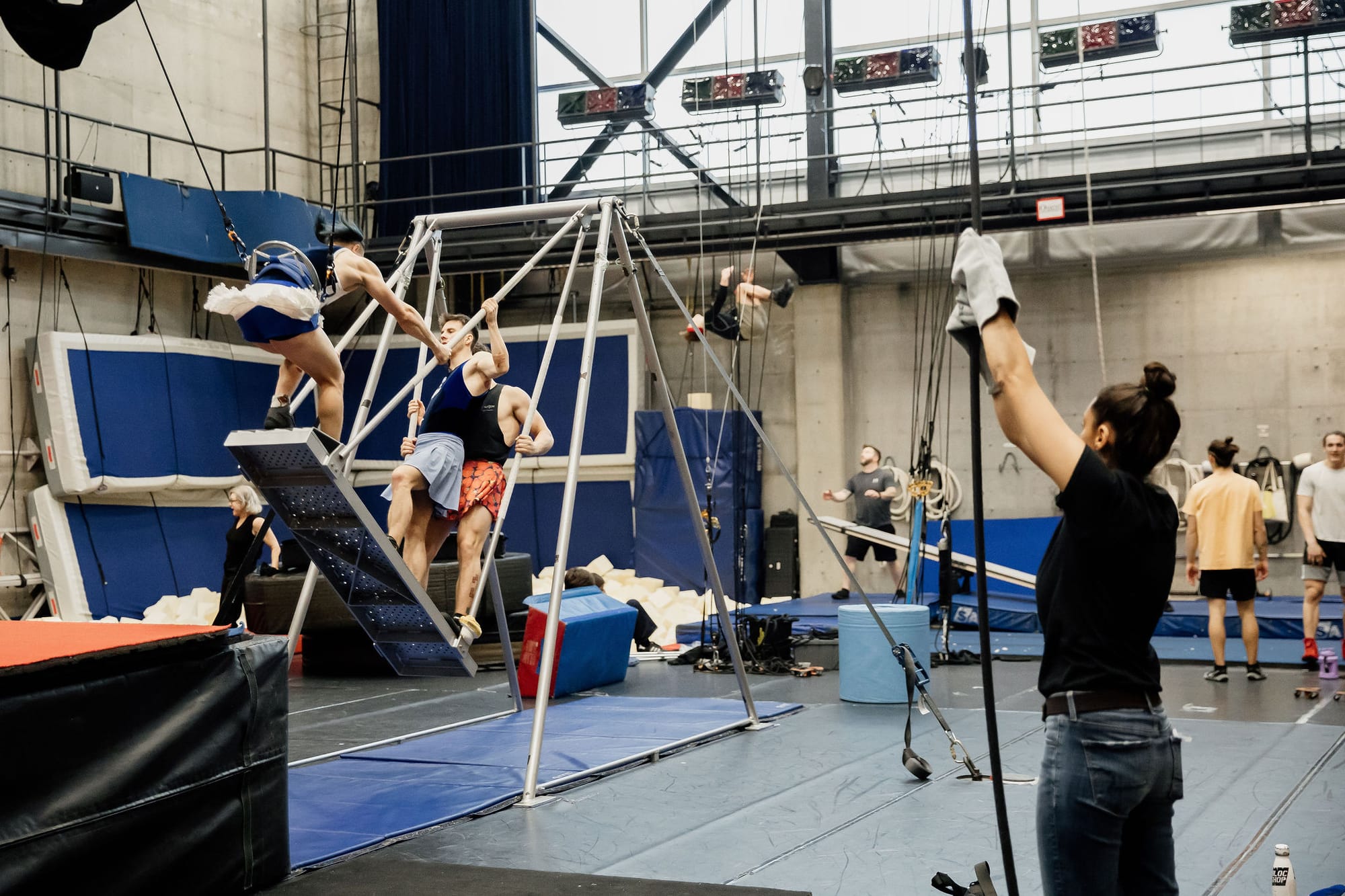
Who does not need a rigger? Awareness in the circus sector improves through the recognition of specific working roles and figures, like those of the riggers, who are responsible for calculating weight and know how to lift people and objects in high spaces. Mixing techniques with innovative skills, they know how to solve problems creatively and are responsible for the safety of others. Sometimes, their efficient and necessary presence behind the scenes remains hidden or mysterious. A European Project, RIGGERS, led by SKH and FEDEC, has initiated an international riggers community that now shares the issues, challenges and needs of the sector, inspiring innovation from a technical and creative point of view. The project concluded during an open session during the conference Circus - a safe(r) space for danger. As the project’s manager, I will tell you more about this intense and passionate two-year journey.

It is an October afternoon in 2019 in Auch, France, during the Circa festival. Twelve individuals are chatting away in a room. "That performance did not meet the minimum safety conditions!" "But wait, what do you mean by ‘minimum conditions’? Who establishes them?" "Students cannot take the same risks as professionals..." "What are the rules to respect? And who should enforce them?"
The project RIGGERS - React, Invent, Get together for a Goal: Expertise in Rigging Services was born from these questions and many others around safety and rigging.
What would Circus be without some risk? Every circus performer must learn from the very beginning how to manage and control the risks involved in their artistic practice. For this reason, every circus school has at least one person responsible for all safety aspects. This person may have different titles (for example: 'safety technician' or 'technical director') but it is commonly known as a "rigger" internationally.
The responsibilities of the rigger in a school are many. Installing and maintaining anchor points and equipment, keeping training spaces safe, ensuring that safety rules are implemented by the school staff, providing technical support for artistic creation, designing new equipment, and passing on basic rules and good practices to the students, who will then use them throughout their careers.
On that day in 2019 in Auch, FEDEC organised an informal meeting dedicated to riggers, where a small group of them told us that, in school and the professional world, the work of these professionals often remains invisible until an accident occurs.
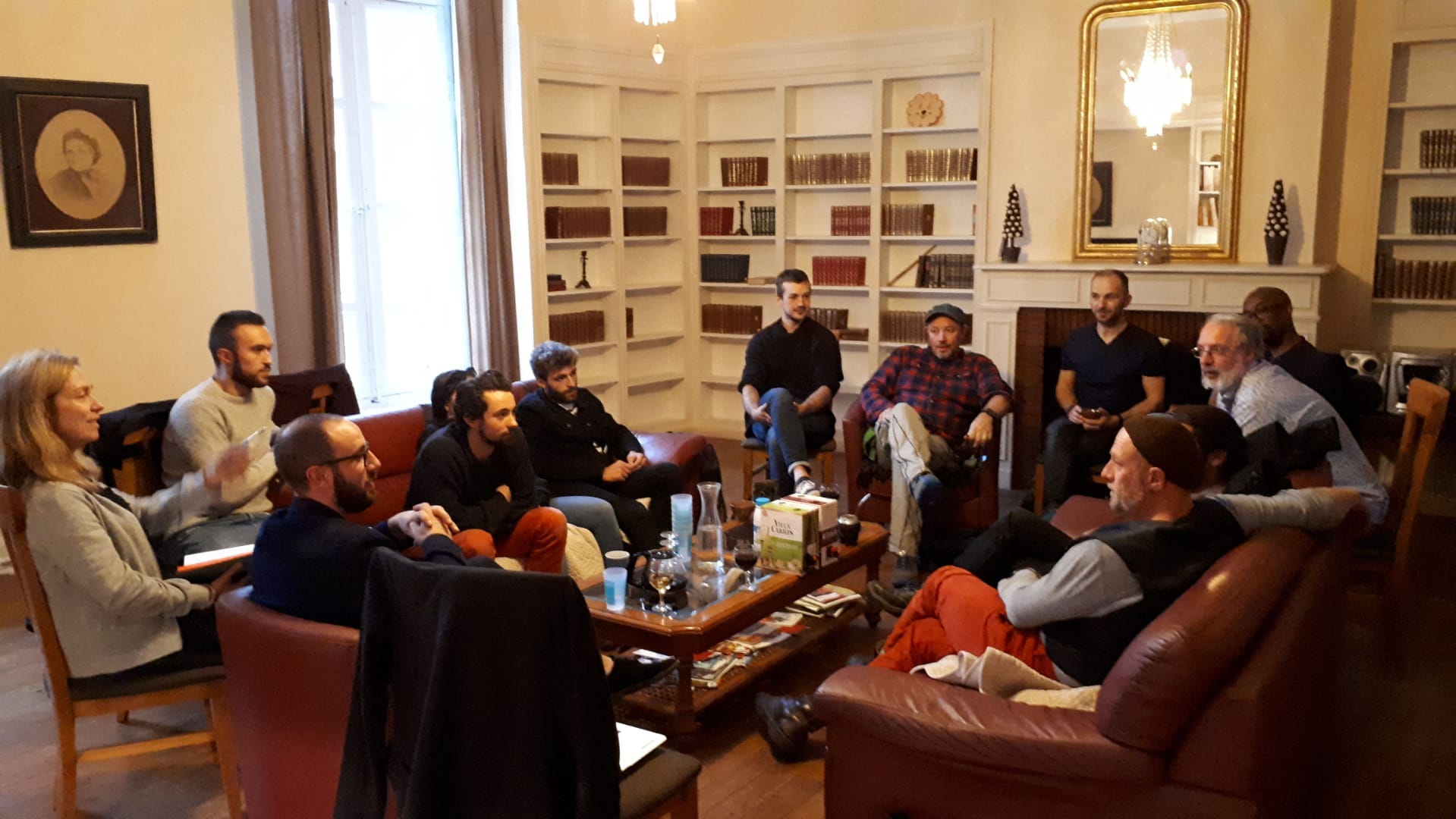
In schools, riggers sometimes feel isolated, with a heavy burden of responsibility on their shoulders. Moreover, even if circus students, teachers and professionals are increasingly moving from one country to another, there are yet to be international common safety standards for equipment and space installation and set-up, and only a few countries have a dedicated legislative framework. According to the 2020 FEDEC membership mapping, almost half of the circus school students in Europe come from abroad. Lastly, schools in many countries need help finding competent people for the job, as there is still no agreement on what a rigger's responsibilities and required skills should be.
RIGGERS has been a first step to responding to these needs, bringing together riggers from circus schools and providing space and time to create a community to lay the foundations for the professionalisation of the sector.
Founded by the European Commission's Erasmus+ programme and managed by FEDEC in cooperation with SKH - Stockholm University of the Arts, Sweden - starting in January 2022 and lasting two and a half years - the project enabled around 20 riggers from 10 different schools to participate in more than 20 training, study and exchange events on the topic of safety, both in-person and online. RIGGERS also collaborated with several national festivals and centres to disseminate its results.
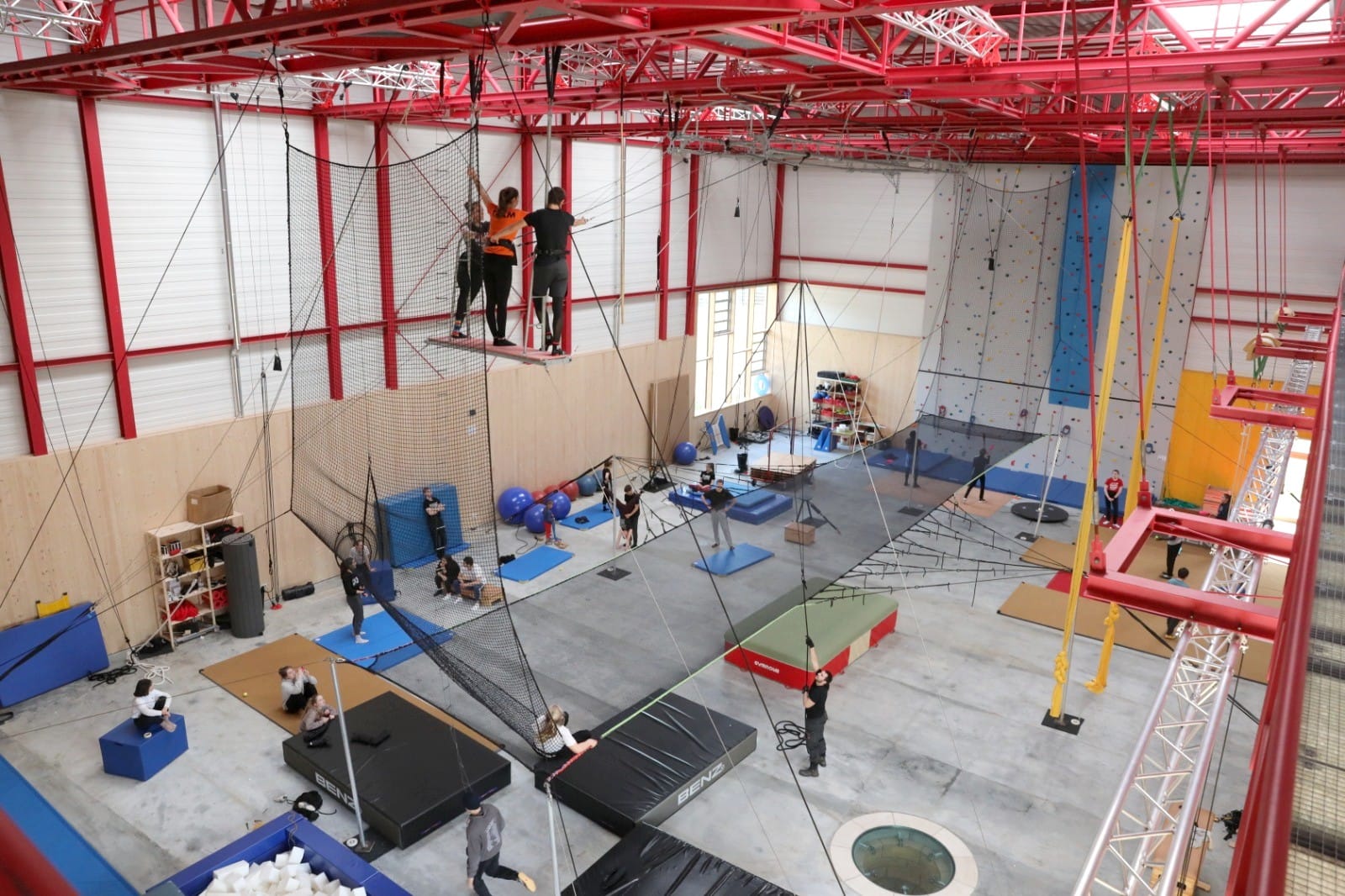
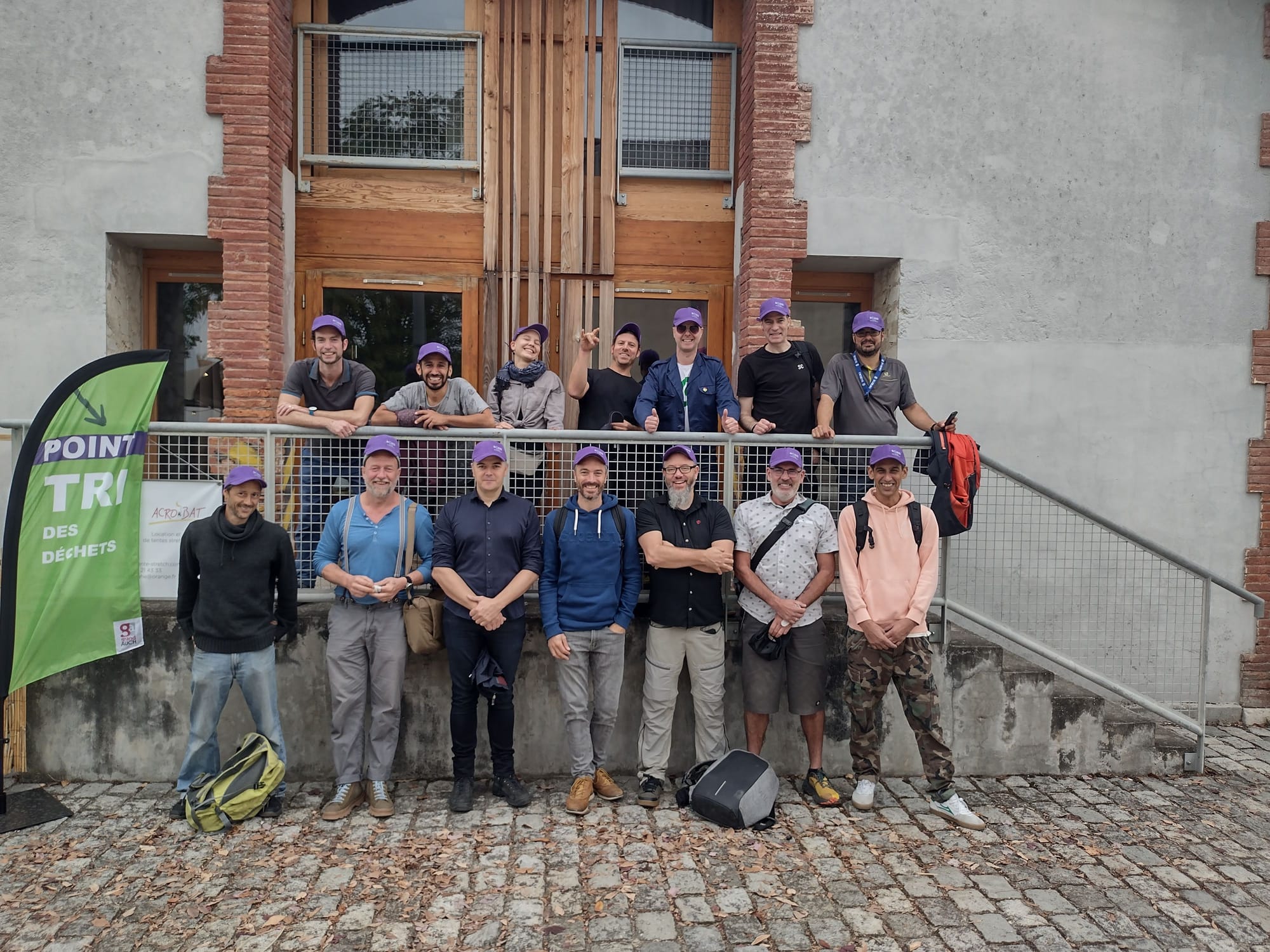
The project generated three concrete outcomes:
The FED-Talks: a series of video tutorials in which project participants share good practices on safety and rigging. "How should you inspect your rig every time you use it to use it safely?" you will find the answer to this and other questions on the FEDEC website and YouTube channel.
A dedicated work section on Slack, open to everyone who wants to join in, with 'channels' conversations, each dedicated to a specific topic. The RIGGERS workspace on Slack has allowed the community to expand, hosting background information and updates on the project as technical discussions between riggers.
A survey of the rigger profession in circus schools. A first attempt to map the sector of specialists dealing with all aspects of safety and rigging. Published in April 2023 and available free of charge on the FEDEC website. The research is a comprehensive collection of data that can support interventions and actions on safety.
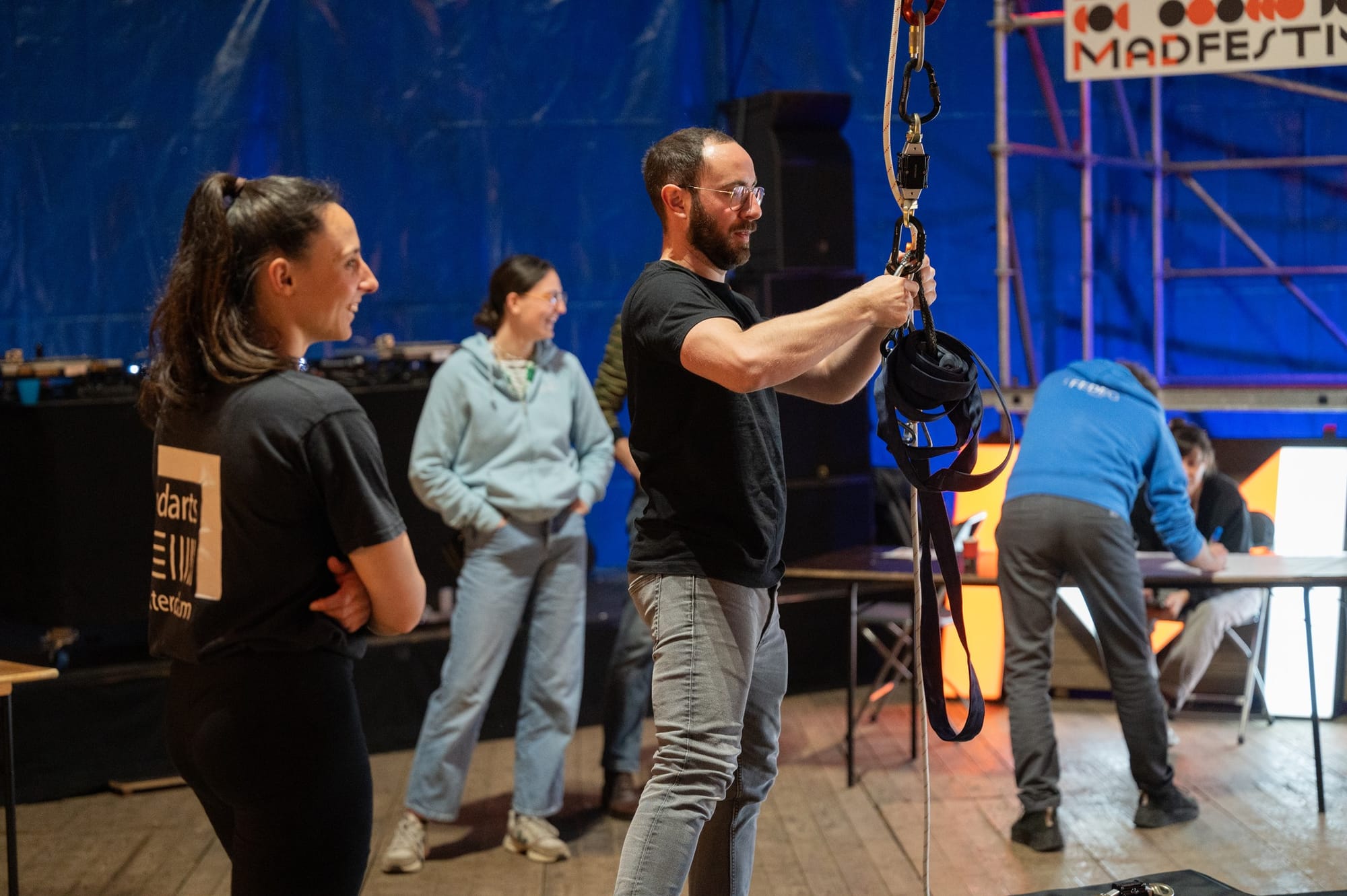
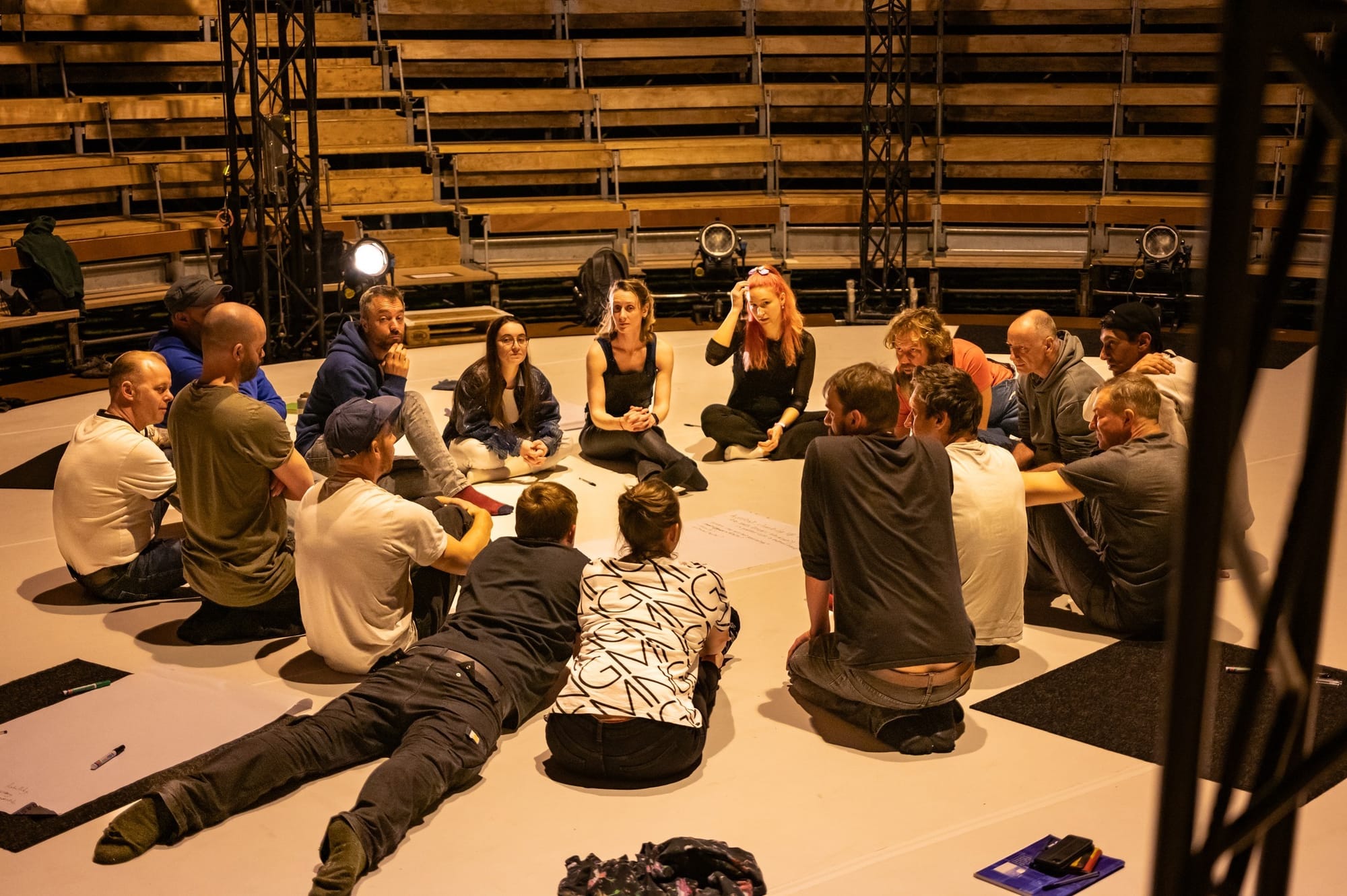
However, the intangible and unexpected results were many more. The project has created lasting bonds between riggers and initiated synergic collaborations among circus schools. Some received specific advice on setting up anchor points in a new building, some were able to hire new riggers, while others received good advices on where to purchase the best three-ring release system.
Among its side effects, the project has also helped bring safety into the focus of the industry's agenda and ended with a last meeting in April at the international conference Circus - a safe(r) space for danger, organised by Circuscentrum, Ell Circo D’ell Fuego and MAD Festival. In that context, RIGGERS' participants shared time, attended workshops, and told a passionate audience about two and a half years of meetings and exchanges.
What the riggers explained in a dedicated panel in Antwerp is the most important result of the RIGGERS project: the creation of an international community that is a safety net for experienced and novice riggers. A space where they can share knowledge and practices, ask questions, seek support, and launch new initiatives.
Bringing in new skills and developing the community is FEDEC's goal for the coming years. A future project dedicated to riggers will open the community to new schools - particularly those in the youth sector - to develop a circus safety pedagogy, a riggers' training to pass on their knowledge and produce new FED-Talks to disseminate the results on a broader scale.
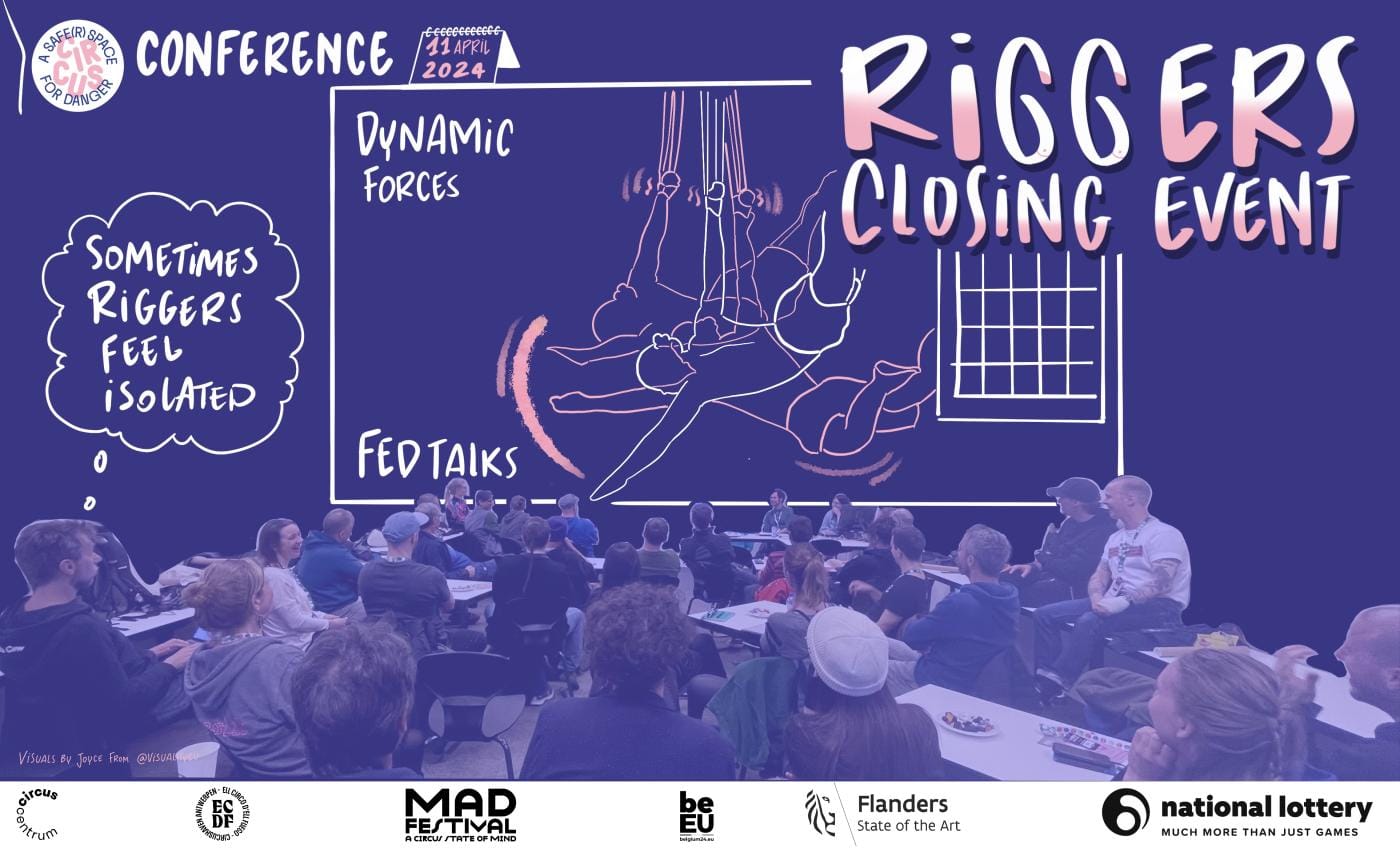
Project Data
Programme
Erasmus+
Full partners
AFUK (Denmark), Codarts (Netherlands), Cirko Vertigo (Italy), Studio Folie (Estonia), ENC (Canada), ESAC (Belgium), Ésacto'Lido (France), FEDEC (Belgium), Fontys (Netherlands), NCCA (UK), SKH (Sweden).
Associated partners
Circuscentrum (Belgium), CRITAC (Canada), École de Cirque de Quebec (Canada), En Piste (Canada), festival Circa (France), Festival Circolo (Netherlands), Festival Mondial du Cirque du Demain (France), festival Sul Filo del Circo (Italy).
Duration
January 2022 - April 2024
Budget
€ 240,461.00
*This content has been published in Italian on Juggling Magazine 103
